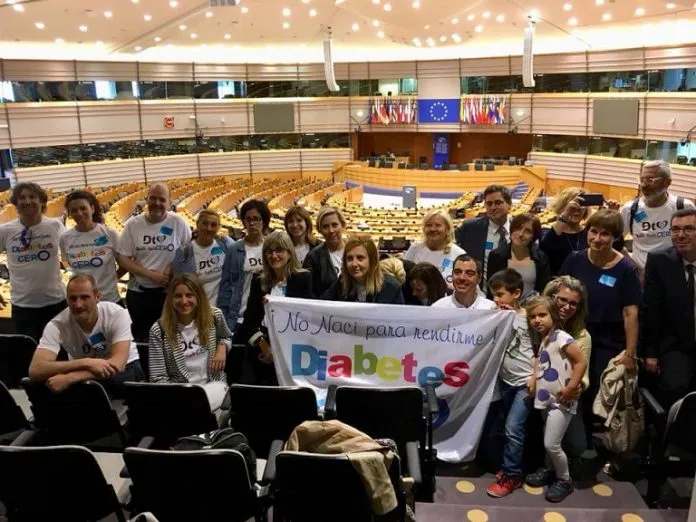A representation of diabetescero formed by 24 members between parents, mothers and scientists dedicated to biomedical research for the cure of this disease met with the General Directorate of the European Health Commission and with the Diabetes Working Group to give visibility to diabetesType 1 and manifest the urgent need to invest in research for the cure of the disease.
Carolina Paniagua, from Ciudad Rodrigo, was present at the Spanish delegation.
Type 1 diabetes is an autoimmune disease that remains in the shadow of type 2 diabetes in terms of resources, being the DT1 a disease that arises in pediatric age and with serious complications such as retinopathy, amputations, heart transplantation, pancreas ...
It is considered a serious and rare disease, however, more than 1 million children under 20 suffer from this disease, with 132,600 new cases every year.Only in Spain there are approximately 30,000 children under 15 with this pathology.Increasing this data every year by 3%.
Both scientists and diabetescero presented the need to invest in the preclinical phase of an investigation.The union between administration, scientists and society is essential to answer the question. Why does type 1 diabetes happen?There are numerous investigations but this issue has not yet been answered, key to finding the way to the cure of type 1 diabetes.
The day consisted of several work tables in which Xavier Prats Monnet (Director-General for Health and Food Safety) were present;Miguel Lizaso (Scientific Officer at European Commission);and Marisa Matías (Diabetes Working Group).After the tables they offered a package of actions to work together with Diabetescero, as visibility through several European platforms, Erasmus + health, and work in research areas.
The Diabetescero Foundation is a movement of parents of children with type 1 diabetes that finance research projects for the cure of this disease.Born 5 years ago, this organization is growing exponentially through social networks and currently has 20 delegations distributed throughout the national territory.The interest shown by the European Parliament is because this movement is unique in Europe.


